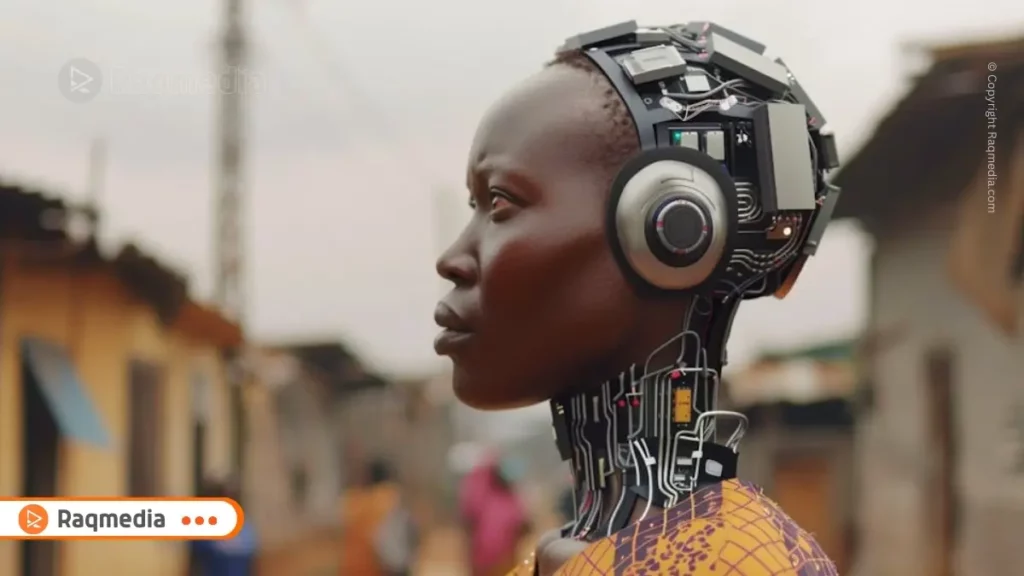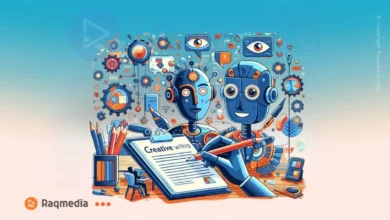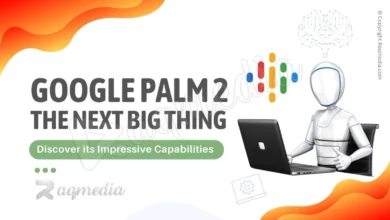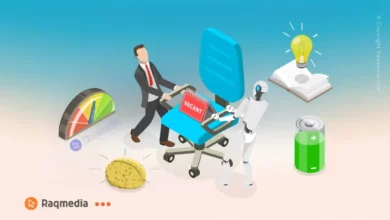As the African continent continues to evolve and grow, a new era of technological advancement is transforming the way people live, work, and interact. At the forefront of this revolution is Artificial Intelligence (AI), a powerful force that is reshaping the fabric of African society. From automating manual tasks to improving healthcare outcomes, AI is unlocking unprecedented opportunities for economic growth, innovation, and progress.
Table of Contents
- 1 How AI is Revolutionizing Africa's Future
- 2 Introduction to AI in Africa: The dawn of a new era
- 3 The Current state of AI in Africa: Challenges and opportunities
- 4 How AI Is Transforming Industries in Africa
- 5 Agriculture 2.0: How AI Is Boosting Crop Yields and Reducing Famine
- 6 AI in Healthcare: Improving Diagnosis and Access to Care
- 7 The AI-powered Future of Education in Africa
- 8 AI-driven finance: Increasing access to financial services
- 9 The role of AI in addressing Africa's infrastructure challenges
- 10 The Impact of AI On African Entrepreneurship and Innovation
- 11 The Ethics of AI in Africa: Ensuring Responsible Development
- 12 Preparing Africa's Workforce for an AI-driven Future
- 13 Embracing the AI Revolution in Africa
How AI is Revolutionizing Africa's Future
With its potential to drive efficiency, productivity, and innovation, AI is poised to revolutionize Africa's future, enabling the continent to leapfrog traditional development paths and emerge as a global leader in the digital age. In this post, we'll shed lights on the exciting ways AI is transforming Africa's economy, infrastructure, and daily life, and explore the vast possibilities that this technology holds for the continent's future.
Introduction to AI in Africa: The dawn of a new era
As the sun rises over the vast savannas and bustling cities of Africa, a new era of innovation is unfolding. The continent, once perceived as a laggard in technological advancements, is now poised to take a giant leap forward, thanks to the rapid proliferation of Artificial Intelligence (AI). This revolutionary technology is transforming the fabric of African societies, economies, and industries, promising to unlock unprecedented opportunities for growth, development, and prosperity.

From the dusty streets of Nairobi to the vibrant markets of Lagos, AI is quietly permeating every aspect of African life. It's helping farmers in rural Ghana to predict and prevent crop failures, enabling doctors in South Africa to diagnose diseases with uncanny accuracy, and empowering entrepreneurs in Egypt to create innovative solutions that are disrupting traditional industries. As AI continues to spread its roots deep into the African soil, it's becoming increasingly clear that this technology is not just a luxury of the developed world, but a vital tool for Africa's sustainable development and integration into the global economy.
The Current state of AI in Africa: Challenges and opportunities
As we gaze out upon the vast expanse of Africa, a continent teeming with potential and promise, it's clear that the winds of change are blowing in the form of Artificial Intelligence. While AI has already begun to make its mark on the global stage, Africa's unique landscape presents a distinct set of challenges and opportunities that will shape the trajectory of this technological revolution.
On one hand, Africa's burgeoning tech industry is poised to capitalize on the transformative power of AI. With many countries on the continent boasting rapidly growing economies, urbanizing populations, and increasing access to digital technologies, the stage is set for AI to drive innovation and growth. In fact, according to a recent report, the African AI market is expected to reach $12 billion by 2025, with countries like South Africa, Egypt, and Nigeria leading the charge.
However, despite this promising outlook, Africa also faces a myriad of challenges that could hinder the widespread adoption of AI. For instance, inadequate infrastructure, limited access to quality education and training, and a shortage of skilled AI professionals all pose significant obstacles to the continent's ability to harness the full potential of AI. Moreover, the lack of localized data and the need for cultural and linguistic adaptation of AI systems to African contexts also present unique hurdles that must be overcome.
How AI Is Transforming Industries in Africa
The transformative power of Artificial Intelligence (AI) is being felt across various industries in Africa, bringing about a paradigm shift in the way businesses operate and people live. From healthcare to finance, education to agriculture, AI is revolutionizing the continent's economic landscape. In the healthcare sector, AI-powered diagnostic tools are enabling medical professionals to accurately diagnose diseases, such as cancer and malaria, at an early stage, leading to better treatment outcomes and improved patient care.
In the financial sector, AI-driven chatbots are enhancing customer experience, while AI-powered fraud detection systems are reducing the risk of fraudulent transactions. In agriculture, AI-based precision farming is optimizing crop yields, reducing waste, and increasing profitability for farmers. Moreover, AI-powered educational platforms are making quality education more accessible and affordable for millions of Africans, bridging the skills gap and preparing the next generation of leaders for the challenges of the 21st century.
As AI continues to permeate every aspect of African life, it is clear that the continent is on the cusp of a transformative era, one that promises to unlock unprecedented economic growth, innovation, and prosperity.
Agriculture 2.0: How AI Is Boosting Crop Yields and Reducing Famine
The African continent has long been plagued by the specter of famine, with unpredictable weather patterns, limited arable land, and outdated farming practices all contributing to a precarious food security situation. However, the advent of Artificial Intelligence (AI) is set to revolutionize the agricultural sector, transforming the fortunes of African farmers and ensuring a more food-secure future for generations to come.
With AI-powered precision farming, African farmers can now optimize crop yields, reduce waste, and minimize the environmental impact of their operations. By leveraging advanced sensors, drones, and satellite imaging, AI algorithms can analyze soil conditions, weather patterns, and crop health in real-time, providing farmers with actionable insights to inform their decision-making.
For instance, AI-driven crop monitoring systems can detect early signs of drought, pests, and diseases, enabling farmers to take proactive measures to mitigate losses and optimize their irrigation systems. Similarly, AI-powered precision irrigation systems can optimize water usage, reducing waste and conserving this precious resource.
The results are nothing short of astounding. In Kenya, for example, AI-powered farming initiatives have seen crop yields increase by as much as 30%, while in Ghana, AI-driven irrigation systems have reduced water consumption by a staggering 50%. As AI continues to transform the agricultural landscape in Africa, the potential to eradicate famine and ensure a food-secure future for all becomes increasinglywithin reach.
AI in Healthcare: Improving Diagnosis and Access to Care
The advent of Artificial Intelligence in Africa's healthcare sector is a game-changer, and its impact is being felt across the continent. One of the most significant areas where AI is making a difference is in diagnosis. With the help of machine learning algorithms, AI-powered systems can analyze medical images, patient data, and medical literature to provide accurate diagnoses, often more quickly and accurately than human doctors. This is particularly crucial in Africa, where there is a shortage of medical professionals, and many patients lack access to quality healthcare.
In addition, AI is also improving access to care by enabling remote consultations and telemedicine. This is especially important in rural areas where healthcare facilities are scarce, and patients often have to travel long distances to receive medical attention. With AI-powered telemedicine, patients can receive medical consultations and diagnoses from the comfort of their own homes, reducing the need for travel and increasing access to healthcare.
Furthermore, AI is also helping to address the issue of counterfeit medicines, which is a major problem in Africa. AI-powered systems can analyze the chemical composition of medicines and detect fake or counterfeit drugs, ensuring that patients receive genuine and effective treatments. Overall, the integration of AI in healthcare is revolutionizing the sector, and its potential to improve healthcare outcomes in Africa is vast.
The AI-powered Future of Education in Africa
As the African continent continues to grapple with the challenges of providing quality education to its rapidly growing youth population, AI is poised to revolutionize the sector in ways that were previously unimaginable. With the continent's education system often plagued by issues such as inadequate infrastructure, overcrowded classrooms, and a shortage of qualified teachers, AI-powered solutions are emerging as a beacon of hope.
Imagine a future where AI-driven virtual learning platforms provide personalized learning experiences for students, tailored to their individual learning styles and abilities. Envision intelligent tutoring systems that offer one-on-one support to students, freeing up human teachers to focus on more complex and creative tasks.
Picture AI-powered adaptive assessments that continuously evaluate student progress, identifying areas of strength and weakness, and providing real-time feedback to teachers. The potential impact of AI on Africa's education sector is vast, and it's not just about access to quality education – it's also about preparing the next generation of African leaders, innovators, and entrepreneurs to thrive in an increasingly technology-driven world. As AI continues to transform the education landscape, Africa's youth will be empowered to drive the continent's socio-economic growth, and shape a brighter future for themselves and their communities.
AI-driven finance: Increasing access to financial services
In Africa, where financial exclusion remains a significant barrier to economic growth, AI-driven finance is emerging as a game-changer. Traditional banking systems have long struggled to reach rural and underserved communities, leaving millions without access to basic financial services. However, AI-powered fintech solutions are bridging this gap, bringing financial inclusion to the masses.
With AI-driven algorithms, financial institutions can now assess creditworthiness, detect fraud, and offer personalized financial services to individuals and small businesses. Mobile-based payment platforms, such as M-Pesa, have already demonstrated the potential of digital finance to reach the unbanked. AI takes this a step further, enabling lenders to offer microloans, insurance, and other financial products to those previously excluded from the formal financial system.
In addition, AI-powered chatbots are providing customers with 24/7 support, helping them navigate complex financial processes and make informed decisions. This increased accessibility is not only empowering individuals but also stimulating economic growth, as more people are able to participate in the formal economy and contribute to their local communities.
As AI continues to transform the financial landscape, Africa is poised to reap the benefits of increased financial inclusion, reduced poverty, and accelerated economic development. The rise of AI-driven finance is a powerful catalyst for change, and one that holds great promise for the continent's future.
The role of AI in addressing Africa's infrastructure challenges
As Africa continues to urbanize at a rapid pace, its infrastructure is facing unprecedented pressure. From congested roads to inadequate public transportation systems, the continent's infrastructure challenges are a significant hindrance to economic growth and development. However, artificial intelligence (AI) is poised to play a transformative role in addressing these challenges.
With its ability to analyze vast amounts of data, AI can help optimize traffic flow, predict maintenance needs, and identify areas of inefficiency in transportation systems. For instance, AI-powered traffic management systems can analyze real-time traffic data to optimize traffic signal timing, reducing congestion and decreasing travel times. Moreover, AI can help optimize the maintenance of infrastructure such as roads, bridges, and buildings, reducing the need for costly repairs and improving overall safety. Additionally, AI-powered systems can help identify areas where infrastructure investments are needed most, ensuring that resources are allocated effectively.
By leveraging AI, African countries can leapfrog traditional infrastructure development approaches, creating smarter, more efficient, and more sustainable cities that support the continent's rapid growth and development.
The Impact of AI On African Entrepreneurship and Innovation
As AI continues to permeate various sectors of the African economy, its influence on entrepreneurship and innovation is becoming increasingly apparent. The continent's vibrant startup ecosystem is leveraging AI to tackle some of its most pressing challenges, from healthcare and education to finance and agriculture. With AI-powered solutions, entrepreneurs are now better equipped to navigate the complexities of the African market, where data scarcity and limited infrastructure have long hindered growth.
By automating tasks, enhancing decision-making, and unlocking new insights, AI is empowering entrepreneurs to develop more efficient, scalable, and sustainable business models. Moreover, AI-driven innovation is giving rise to new opportunities for African entrepreneurs to tap into the global market, compete with international counterparts, and create jobs that were previously unimaginable. As a result, the African entrepreneurial landscape is undergoing a significant transformation, with AI emerging as a key catalyst for growth, prosperity, and economic development.
The Ethics of AI in Africa: Ensuring Responsible Development
As AI continues to transform Africa's economy, healthcare, education, and governance, it's crucial to acknowledge the ethical implications of this technological revolution. The development and deployment of AI in Africa must be guided by a strong moral compass, ensuring that its benefits are equitably distributed and its risks are mitigated.
In a continent where data privacy laws are still in their infancy, the collection and use of personal data by AI systems raise concerns about surveillance, bias, and discrimination. For instance, facial recognition technology, which has been used to monitor and control populations in other regions, could be exploited to perpetuate existing social injustices in Africa.

Moreover, the automation of jobs could exacerbate existing income inequalities, disproportionately affecting vulnerable populations such as women, youth, and people with disabilities. It's essential to develop AI systems that are transparent, explainable, and fair, with algorithms that are designed to promote inclusivity and social justice.
To ensure responsible AI development in Africa, governments, policymakers, and industry leaders must work together to establish robust regulatory frameworks, invest in digital literacy programs, and foster a culture of accountability and transparency. By doing so, Africa can harness the power of AI to create a brighter, more equitable future for all its citizens.
Preparing Africa's Workforce for an AI-driven Future
As Africa stands at the threshold of an AI-driven revolution, it's crucial to acknowledge that the impact of automation will be felt far beyond the confines of industries and economies. The most significant ripple effect will be on the workforce itself. With AI-powered machines and algorithms poised to take over tasks that were previously the exclusive domain of humans, the very fabric of employment is about to undergo a seismic shift.
In this context, preparing Africa's workforce for an AI-driven future is no longer a choice, but a necessity. It's imperative to equip the continent's workforce with the skills, adaptability, and agility to not only survive but thrive in an AI-dominated landscape. This necessitates a fundamental overhaul of the education system, vocational training, and continuous learning pathways to ensure that Africans are equipped to work alongside intelligent machines, rather than being replaced by them. By doing so, Africa can unlock the true potential of its human capital, harness the transformative power of AI, and emerge as a global leader in the 4th Industrial Revolution.
Embracing the AI Revolution in Africa
As we stand at the threshold of a new era, it's clear that Artificial Intelligence has the potential to revolutionize the future of Africa. From streamlining healthcare services to boosting agricultural productivity, and from enhancing educational experiences to fortifying cybersecurity, AI's transformative power is undeniable. As we move forward, it's crucial for African nations to embrace this revolution, harnessing its potential to drive growth, innovation, and development.
By doing so, Africa can leapfrog traditional development trajectories, bridging the gap with the developed world and unlocking a brighter future for its citizens. The time to act is now – let us seize the opportunities presented by AI, and together, shape a future that is more efficient, more sustainable, and more African.
As we conclude our journey into the transformative world of Artificial Intelligence in Africa, it's clear that the continent is on the cusp of a revolutionary era. From healthcare to finance, education to agriculture, AI is poised to unlock unprecedented growth and innovation, bridging the gap between Africa's vast potential and its current reality.
As we look to the future, one thing is certain – the machines are rising, and Africa is ready to rise with them. The possibilities are endless, and we can't wait to see the incredible impact that AI will have on the continent and its people. The future is bright, and it's being written in code.










Experience the groundbreaking impact of AI on Africa’s future in Rise Of The Machines. Delve into how artificial intelligence is reshaping the continent.